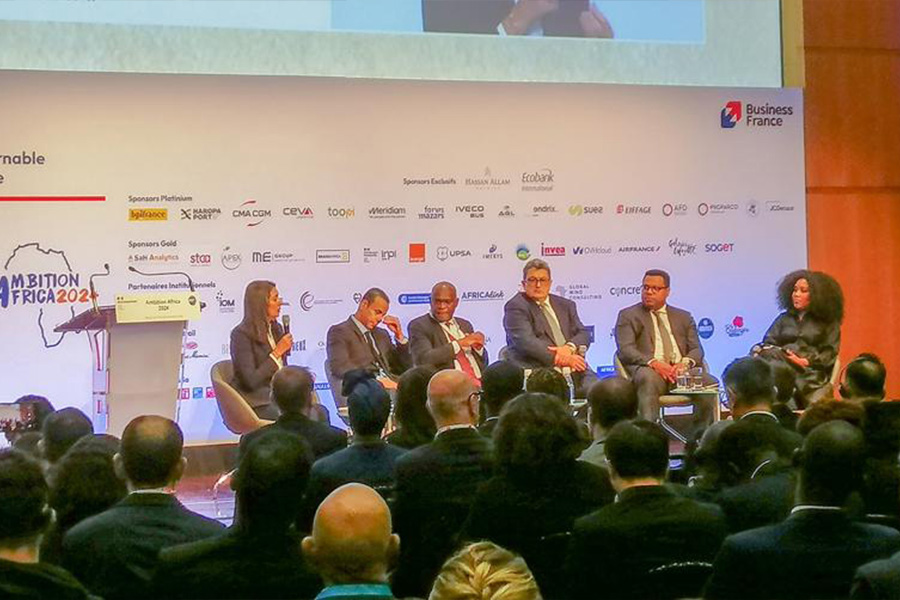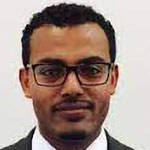
Viewpoints | Aug 01,2020
Feb 20 , 2021
By Ristu Fekadu
In mathematics, exponential decay describes the process of reducing an amount by a consistent percentage rate over a period of time. This is an excellent analogy for the state of professionalism in Ethiopia. The only difference is that this decay is not coming from a high summit. It is merely chipping away to a point where it is nearly impossible to improve from. Under such circumstances, it is not clear how we continue to expect things to improve anytime soon.
As the famous quote goes, “Insanity is doing the same thing, over and over again, but expecting different results.”
There is no time to hold and relax in these conditions by maintaining the status quo and expecting improvement. At some point, we need to get out of our routine to achieve different and better results.
Professionalism has for long been sidelined. This is not a surprise to anyone given our poor work culture. But it is also true that today, many have come up with a “high-copy” of professionalism as a stand-in. People try to do the minimum and yet reap the greatest rewards. They try to work "smart," and not hard.
Much has been said about professionalism and the professional class, both of which barely exist in Ethiopia. It is the set of specialised tasks that have to be carried out for any modern economy to function. It is to accumulate these skillsets that the country invests billions of Birr in education each year.
But without the culture and the proper incentives to uphold professionalism, several sectors have suffered. Trained individuals are either not adequately motivated or incentivised to apply themselves. They instead take detours to the obstacles they face than present ways of addressing rather challenges in the long-term.
Employers seem to be resigned to this problem. Employee turnover is high – especially for recent graduates – to the point that companies are not as motivated as they should be to train. Usually, they accidentally come across some people willing to stick around and successfully carry out some of the minimum tasks that keep the company afloat and cease aspiring toward more professionalism or better specialisation.
Worse still, professionalism has come to be confused with egotism. Having a certain level of self-obsession and hardheadedness has become the popular expression of the traits of a professional. It is not authenticity, discipline, output, flexibility or the capacity to work as a team for many people. It is misconceived as being arrogant and not humble and continuous learner.
Individuals that have a deep interest in their tasks and are continuous learners are critical. It is often the case that a degree or certificate are poor substitutes for this, mostly only showing that a student has successfully answered certain standardised questions correctly.
“The world is divided into people who do things and people who get the credit. Try, if you can, to belong to the first class. There’s far less competition,” American businessman Dwight Morrow once said.
Executing in a manner of problem-solving and simultaneously recognising the problem's intensity and nature is vital. Unless it is understood clearly, professionalism will become just a word. Enhancing productivity, recognising creative ideas, taking calculated risks, and the ability to work in teams emanates from the aspiration to be professional. Otherwise, if we keep going along our current path and with the prevailing pace, our chances of catching up with the rest of the world are dim.
To address this cultural failure, there is also a need to have a behavioural reset. First, we need to recognise that we are underperforming in our capacity, then we have to commit ourselves to address this shortcoming. Not much should be expected of going ahead with the same old.
PUBLISHED ON
Feb 20,2021 [ VOL
21 , NO
1086]


Viewpoints | Aug 01,2020

Viewpoints | Dec 02,2023

Editorial | Jun 01,2019

Editorial | Jan 27,2024

Commentaries | Apr 25,2020

Commentaries | Mar 26,2022

My Opinion | Jul 06,2019

Fortune News | Jan 13,2024

Fortune News | Dec 01,2024

Verbatim | Oct 23,2021

Photo Gallery | 173949 Views | May 06,2019

Photo Gallery | 164176 Views | Apr 26,2019

Photo Gallery | 154264 Views | Oct 06,2021

My Opinion | 136603 Views | Aug 14,2021
Editorial | Oct 11,2025

Dec 22 , 2024 . By TIZITA SHEWAFERAW
Charged with transforming colossal state-owned enterprises into modern and competitiv...

Aug 18 , 2024 . By AKSAH ITALO
Although predictable Yonas Zerihun's job in the ride-hailing service is not immune to...

Jul 28 , 2024 . By TIZITA SHEWAFERAW
Unhabitual, perhaps too many, Samuel Gebreyohannes, 38, used to occasionally enjoy a couple of beers at breakfast. However, he recently swit...

Jul 13 , 2024 . By AKSAH ITALO
Investors who rely on tractors, trucks, and field vehicles for commuting, transporting commodities, and f...

Oct 11 , 2025
Ladislas Farago, a roving Associated Press (AP) correspondent, arrived in Ethiopia in...

Oct 4 , 2025
Eyob Tekalegn (PhD) had been in the Governor's chair for only weeks when, on Septembe...

Sep 27 , 2025
Four years into an experiment with “shock therapy” in education, the national moo...

Sep 20 , 2025
Getachew Reda's return to the national stage was always going to stir attention. Once...

Oct 12 , 2025
Tomato prices in Addis Abeba have surged to unprecedented levels, with retail stands charging between 85 Br and 140 Br a kilo, nearly triple...

Oct 12 , 2025 . By BEZAWIT HULUAGER
A sweeping change in the vehicle licensing system has tilted the scales in favour of electric vehicle (EV...

Oct 12 , 2025 . By NAHOM AYELE
A simmering dispute between the legal profession and the federal government is nearing a breaking point,...

Oct 12 , 2025 . By NAHOM AYELE
A violent storm that ripped through the flower belt of Bishoftu (Debreziet), 45Km east of the capital, in...